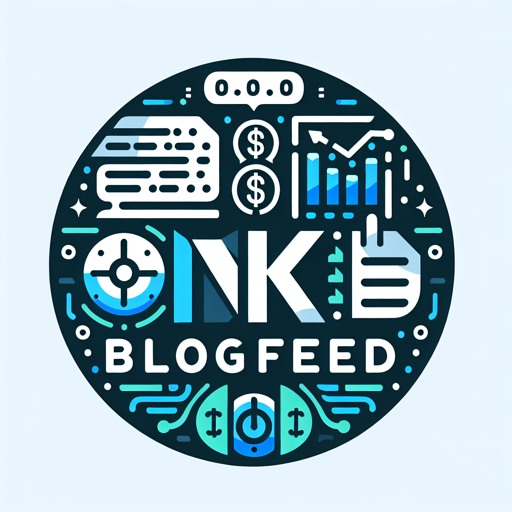Setting goals is an essential part of personal and professional growth. However, not all goals are created equal. To ensure that your aspirations are achievable and meaningful, you might want to consider the SMART criteria.
SMART stands for Specific, Measurable, Achievable, Relevant, and Time-bound. This framework provides a structured approach to goal-setting that can help you clarify your objectives and track your progress effectively. When you set SMART goals, you create a roadmap that guides your actions and decisions.
Instead of vague intentions like “I want to get better at my job,” a SMART goal would be “I will complete a certification course in my field by the end of the year.” This specificity not only makes it easier for you to focus your efforts but also allows you to measure your success along the way. By understanding and applying the SMART criteria, you can transform your dreams into actionable plans that lead to tangible results.
Key Takeaways
- SMART goals are Specific, Measurable, Achievable, Relevant, and Time-bound
- Example of a SMART goal for personal development: “I will read one self-improvement book per month for the next 6 months to enhance my knowledge and skills.”
- Example of a SMART goal for career advancement: “I will complete a professional certification within the next 12 months to increase my qualifications and advance in my career.”
- Example of a SMART goal for health and fitness: “I will exercise for 30 minutes, 5 days a week for the next 3 months to improve my overall health and fitness.”
- Example of a SMART goal for financial management: “I will save 10% of my monthly income for the next year to build an emergency fund and improve my financial stability.”
- Example of a SMART goal for time management: “I will create a daily schedule and prioritize tasks to increase productivity and reduce procrastination.”
SMART Goal Example for Personal Development
Imagine you want to enhance your personal development skills. A SMART goal in this area could be: “I will read one personal development book each month for the next six months.” This goal is specific because it clearly states what you intend to do—read a book. It is measurable since you can easily track the number of books you read each month.
The goal is achievable; reading one book a month is a realistic target for most people. It is relevant to your desire for personal growth, and it is time-bound with a clear deadline of six months. As you embark on this journey, consider how each book can contribute to your overall development.
You might choose titles that focus on different aspects of personal growth, such as emotional intelligence, leadership skills, or mindfulness. By diversifying your reading list, you not only keep the process engaging but also gain a broader perspective on personal development. At the end of the six months, reflect on what you’ve learned and how it has impacted your life.
This reflection will reinforce the value of setting SMART goals and encourage you to continue pursuing growth in other areas.
SMART Goal Example for Career Advancement

In the realm of career advancement, setting SMART goals can significantly enhance your professional trajectory. For instance, you might set a goal like: “I will apply for three new job positions in my field within the next two months.” This goal is specific because it outlines exactly what you plan to do—apply for jobs. It is measurable since you can count the number of applications submitted.
The goal is achievable; applying for three positions in two months is a reasonable target if you dedicate time to research and tailor your applications. It is relevant to your career aspirations, and it has a clear time frame. As you work towards this goal, take the time to refine your resume and cover letter for each application.
Tailoring these documents to highlight your skills and experiences relevant to each position will increase your chances of landing interviews. Additionally, consider networking with professionals in your industry during this period. Engaging with others can provide valuable insights into job openings and company cultures, further enhancing your chances of success.
By the end of the two months, not only will you have applied for new positions, but you’ll also have gained experience in the application process itself.
SMART Goal Example for Health and Fitness
Health and fitness are areas where many people seek improvement, and setting SMART goals can help you achieve lasting changes. A practical example could be: “I will exercise for at least 30 minutes, five days a week for the next three months.” This goal is specific because it defines the type of activity—exercise—and sets a clear duration and frequency. It is measurable; you can easily track your workouts each week.
The goal is achievable; committing to 30 minutes a day is manageable for most individuals. It is relevant to your desire for better health, and it has a defined time frame of three months. To make this goal even more effective, consider varying your workouts to keep things interesting.
You might alternate between cardio exercises like running or cycling and strength training sessions. Additionally, tracking your progress through a fitness app or journal can provide motivation as you see improvements over time. After three months, evaluate how you feel physically and mentally.
Have you noticed changes in your energy levels or mood? Reflecting on these outcomes will reinforce the importance of setting SMART goals in your health journey.
SMART Goal Example for Financial Management
Financial management is another critical area where SMART goals can lead to significant improvements in your life. For example, you might set a goal such as: “I will save $5,000 over the next year by setting aside $416 each month.” This goal is specific because it clearly states the amount you want to save and the time frame in which you plan to do so. It is measurable; you can track your savings each month to ensure you’re on target.
The goal is achievable; saving $416 monthly is realistic if you budget effectively. It is relevant to your financial aspirations, and it has a clear deadline of one year. To support this goal, consider creating a detailed budget that outlines your income and expenses.
Identify areas where you can cut back on discretionary spending to make room for your savings plan. Additionally, explore different savings accounts that offer higher interest rates to maximize your savings potential. As you progress throughout the year, celebrate milestones along the way—perhaps when you reach $2,500 or halfway to your goal.
These small victories will keep you motivated and focused on achieving your financial objectives.
SMART Goal Example for Time Management

Effective time management is crucial for achieving both personal and professional success. A SMART goal in this area could be: “I will allocate one hour each evening for focused study or work on my side project for the next eight weeks.” This goal is specific because it defines what you’ll be doing—studying or working on a project—and when you’ll do it—each evening. It is measurable; you can track how many hours you’ve dedicated each week.
The goal is achievable; setting aside one hour daily is manageable with proper planning. It is relevant to your desire to improve productivity or develop new skills, and it has a clear time frame of eight weeks. To make the most of this time, create a dedicated workspace free from distractions during those hours.
Consider using techniques like the Pomodoro Technique—working in focused bursts followed by short breaks—to maintain concentration and productivity. As the eight weeks progress, assess how well you’re sticking to this schedule and whether you’re making progress toward your goals. At the end of this period, reflect on what you’ve accomplished during those focused hours and how they have contributed to your overall productivity and satisfaction.
In conclusion, setting SMART goals across various aspects of life can lead to meaningful progress and fulfillment. Whether you’re focusing on personal development, career advancement, health and fitness, financial management, or time management, applying the SMART criteria helps clarify your objectives and track your achievements effectively. By committing to specific, measurable, achievable, relevant, and time-bound goals, you’re not just dreaming about change; you’re actively working towards it with purpose and intention.

